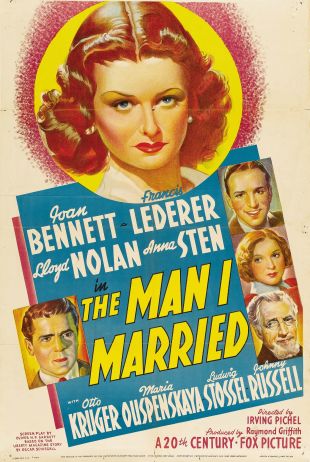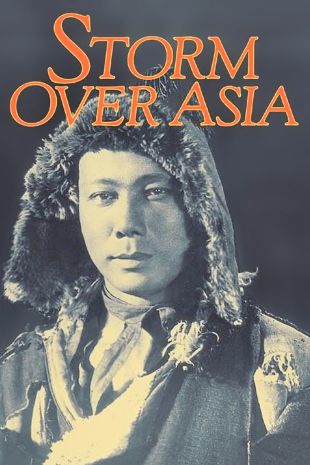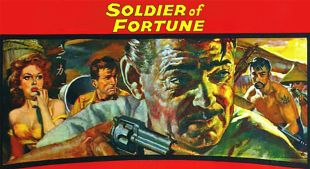Among the many "new Greta Garbos' " of the '30s, Russian-born actress Anna Sten was the most famous -- or rather, most notorious. Anna's father was a Russian ballet master who died when she was twelve; Anna herself worked as a waitress until she was discovered at age 15 while acting in an amateur play in Kiev. Her discoverer was the influential Russian stage director/instructor Konstantin Stanislavsky, who arranged for her to get an audition at the Moscow Film Academy. She acted in plays and films in Russia, then travelled to Germany to appear in films co-produced by German and Russian studios (this sort of "international" production was common in the years prior to World War II). Making a smooth transition to talking pictures, Anna appeared in such German films as Trapeze (1931) and The Brothers Karamazov (1931) until she came to the attention of American movie mogul Samuel Goldwyn. Goldwyn was looking for a foreign-born actress that he could build up as the rival of (and possible successor to) Garbo. The producer did not plunge into this endeavor half-heartedly; for two years after bringing Ms. Sten to America, Goldwyn had his new star tutored in English and taught Hollywood screen acting methods. He poured a great deal of time and money into Sten's first US film, Nana, a somewhat homogenized version of Emile Zola's scandalous 19th century novel. But Nana did not click with the box office -- nor did her two subsequent Goldwyn films, We Live Again (1934) and The Wedding Night (1935). Reluctantly, Goldwyn dissolved his contract with his "new Garbo." Speculation in recent years that Sten's failure to connect with American movie fans was due to a lack of talent is incorrect: Anna Sten could act quite well, but audiences were resistant to (a) her Hollywood-fabricated "exotic" image and (b) Goldwyn's overenthusiastic publicity campaign. Sten continued making films in the US and England, but none of them were remarkable, and few of them - notably a late-'50s "juvenile delinquent" epic produced at cellar-dwelling American International Pictures - were downright horrible. Happily, Sten did not have to rely on acting to support her comfortable lifestyle; she was married to film producer Eugene Frenke, who flourished in Hollywood after following his wife stateside in 1932. Most of Anna Sten's latter-day film appearances were, in fact, favors to her husband: She had an uncredited bit in the Frenke-produced Heaven Knows Mr. Allison (1957), and a full lead in her final film (also produced by Frenke), The Nun and the Sergeant (1962).
Anna Sten
Share on


